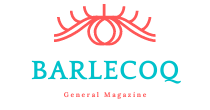Proper nutrition in the first few years of life is critical for healthy development and growth. We all know the significance of eating a well-balanced diet and avoiding excess sugar and salt, but when it comes to immune response support, particular vitamins, minerals, and prebiotics may play an important role.
Nutritional Needs of Babies:
Nursing gives your baby the best life possible and has several advantages, including aiding the development of your immune system. Learn more about breastmilk’s natural genius.
European baby formula will offer the majority of the nutrients your baby will require for growth throughout the first 12 months, including carbs, fat, and protein, as well as substances that will boost your child’s immune system, such as nutrients, mineral deposits, and prebiotics.
Nutrients that are Necessary for your Baby’s Healthy Immune System:
Vitamin D
Vitamin D aids in the proper function of your child’s immune system, which serves as his or her defense against infections. It is also required to enhance calcium and phosphate absorption, two elements that aid in the formation of strong, strong bones and teeth that will maintain your infant during life.
Vitamin D food sources are restricted and include16:
- Fish, trout, prawns, and herring are examples of oily fish.
- Eggs
- Fat coatings with added nutrients
- Foods that are enriched
Since most infant milk is supplemented with vitamin D17, formula-fed babies do not require vitamin And mineral supplements until they are drinking less than 500ml of formula per day, which is usually about 12 months old.
Iron-rich Diets for Infants:
Iron, a mineral found in high concentrations in meats, beans, dried fruits, and fortified foods, promotes physical and mental development in your kid. Because early growth establishes the groundwork for future development, iron is an essential vitamin to include in your baby’s nursing diet.
Have included the iron-rich foods listed below in your baby’s weaning diet to enhance their intake:
- Meats and oily seafood, such as salmon and herring
- Kale and spinach are examples of dark green, leafy vegetables.
- legumes and other pulses
- Fruit dried
- Breakfast cereals that are fortified
Because vitamin C aids iron absorption from foods, particularly those derived from plants, incorporate them in the same meal if possible22. Lentil soup with peppers and tomatoes; reinforced cereal with softly cooked strawberries; bean and potato mash with sticks of steamed vegetables or carrots as finger snacks; and sardines in the sauce are all beneficial pairings.
Zinc Diets for Infants:
Zinc is a mineral that is found in all cells of the body. It aids the immune system in its fight against invading germs and viruses by generating new cells and enzymes. It also aids in the healing of scrapes and wounds.
As with iron, once your infant reaches a particular age, they will require additional zinc-containing meals to fulfill their increasing requirements, so it is critical to incorporate healthy sources from the start of breastfeeding.
Zinc sources to supplement your baby’s diet include:
- Pork
- Milk
- Butter
- Bead and porridge products
Calcium for Infants
Calcium is required for your baby’s teeth and bones to develop properly. This essential nutrient aids in the development of your baby’s skeleton. Milk provides the majority of your baby’s calcium intake, whether they are breastfed or formula-fed. Cow’s milk includes calcium as well, although it is not recommended as a primary drink for babies under the age of 12 months.
Other calcium suppliers include:
- Dairy products such as milk, cheese, and yogurt
- Broccoli, cabbage, and eggplant, but not spinach, are examples of green, leafy vegetables.
- Soy protein beans and tofu nuts – if finely ground – can be added.
- Bread and other products prepared with enriched flour
- Fishes and pilchards are oily fish with bones that you consume (check for any larger pieces of bones)
Nursing gives your baby the best life possible and has several advantages, including aiding the development of your immune system. Learn more about breastmilk’s natural genius.“If you have difficulties with breastfeeding for medical or any other reasons don’t worry, there are organic baby formulas that will allow your child to grow and develop properly.
Final Words:
It’s no coincidence that your baby’s desire for solid foods corresponds with their capacity to sit up and have a more autonomous perspective on the world. During the breastfeeding stage, your baby grows stronger, learns new methods to express their desires and requirements, and continues to grow rapidly. Weaning foods not only provide your baby with crucial nutrients but also allow them to explore diverse tastes, learn to chew, and increase the strength necessary for speech development while creating healthy habits from an early age.









